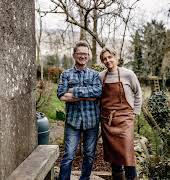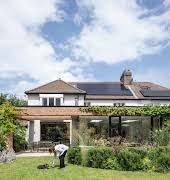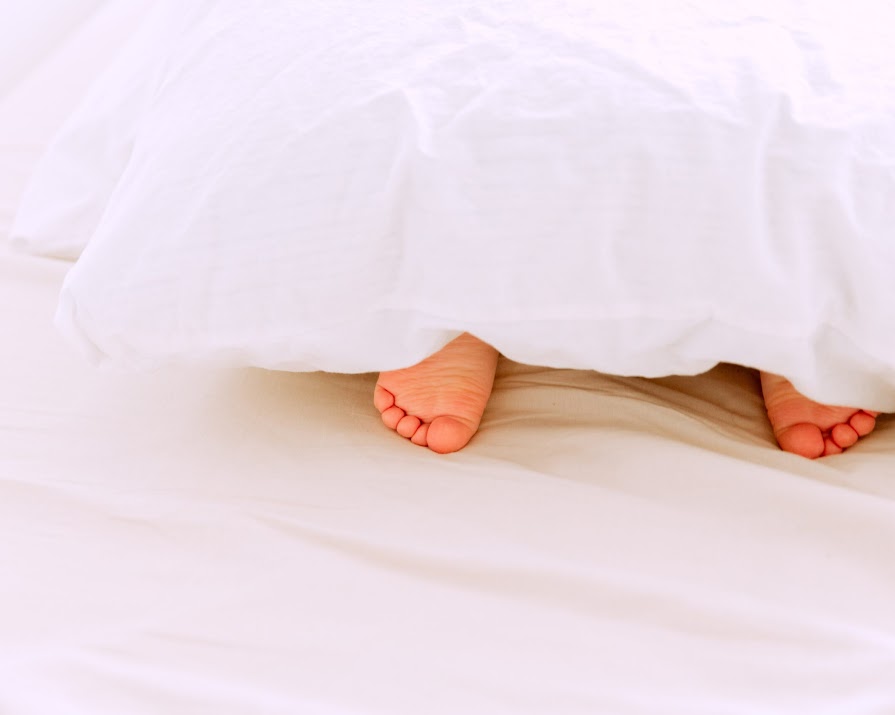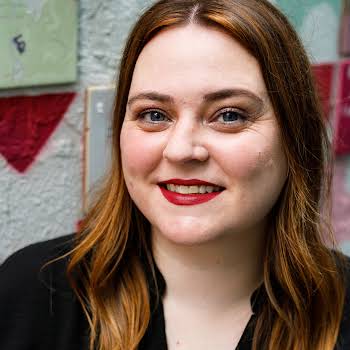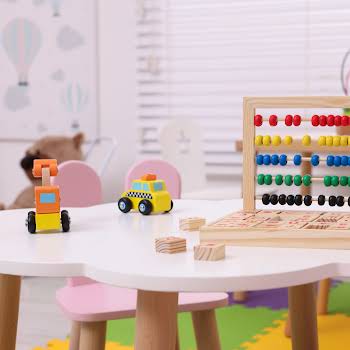
Sleep deprived? Lucy Wolfe on how to get more sleep for you and your kids
By Dominique McMullan
01st Aug 2024
01st Aug 2024
Dominique McMullan sits down with Lucy Wolfe, Sleep Consultant, to share some pearls of childhood sleeping knowledge with IMAGE readers.
I first met Lucy Wolfe, sleep consultant, nearly four years ago. Her compassion and knowledge have been a source of real support to my family over the years, so I was delighted to have the opportunity to sit down with her, to share some of that knowledge with IMAGE readers.
When I first reached out to Lucy, I was desperate. I hadn’t slept for longer than 2 hour intervals in a few weeks. My first born was around five months old. Now I know that this is a crucial time for a new mum. It always seems to be around this time, when the baby is four to six months old, that life gets tough. Sleeping usually becomes more broken, those first few baby bubble months are ending, the village recedes and there comes a realisation that *this* is not stopping anytime soon.
The breaking point came for me, when I went to the shop around the corner from my house to buy my lunch, came home, then went back to the shop to buy my lunch. It was only when I was at the checkout for the second time and felt a sense of Dejavu that I realised what I had done. I was glitching. I needed help.
Advertisement
Before I became a mother I knew nothing about sleep schedules, waking windows, naps times or wind down routines. The art of the sleeping baby was a dark one. Childhood sleep is a topic people get very passionate about. And no wonder. Next to eating and drinking, sleep is essential for well being – both mental and physical. Sleep is a luxury and a basic necessity. Being in a position now of getting (nearly) full nights of sleep again, I am so aware of how positively a good night of sleep impacts my physical and mental health. I can feel the effects in my body. It’s a game changer.
Lucy Wolfe is one of those secret mum weapons that if you know, YOU KNOW. Her name is whispered in coffee shops all over Ireland. I have had more than one woman tell me that she literally saved their lives. Literally. You have to laugh. When I sit down with her, this is the first thing I bring up.
Lucy, it must be tough to be that person that parents come to when they are so desperate. How does that feel?
You know, that sometimes makes me feel uncomfortable because unfortunately that IS when people come to me. When I first get those emails, I know that it has taken those parents a long journey to get to that point. We are not meant to be on this journey by ourselves. It’s brave to reach out. So first of all I think, thank goodness there is someone they can contact. But it’s also tough because if you are in a helping profession, you want to help everybody. But ultimately that’s not possible as I have a really busy practice. That’s difficult sometimes.
What is your topline philosophy when it comes to children’s sleep?
I use an almost psychoeducational approach. Sleep is so individual for each person. While there are strategies to follow, ultimately each child needs a different approach. The strategy for your child needs to resonate with you and sit well with you. You need to feel comfortable and understand the ‘why’ of what they are doing. You need the science, but also the emotional approach needed for your individual child, and household.
Advertisement
Why does childhood sleep still feel like such a minefield?!
I am one voice in this – but you can go on social media and find a totally different voice, saying a totally different thing. That’s very confusing for parents. My eldest son is 21, when he was small we didn’t even have the internet. We were parenting in a vacuum. We had no idea what we were doing! Now, there is so much information available online – but it’s a friend and it’s a foe. It can really add to the confusion between all the different schools of thought. Someone said to me recently – you just need to pick a site, and go with it. I think that’s great advice.
People might avoid using a sleep consultant because they don’t want to upset their kids, or have them cry – what do you say to that?
Much of the guidance out there is very fear based. I get why people think that’s what I might do. Obviously the whole ‘crying it out’ thing is a big part of the narrative. 81% of research around early childhood sleep is based on the ‘extinction method’ – that is crying it out. In 2006, 61% of parenting books were based on some form of crying alone. That is not the way I work, I would never advise someone to do something they didn’t want to do. It’s about working with the family to get the result they want. Parents have a choice. You can responsibly accompany your child on their sleep journey.
You said to me when we first started working together that giving my kids the security and knowledge that they could sleep in their own beds happily was a gift. That stuck with me so much and it’s something I still think of when putting them to bed.
Totally. Sleep is SO important to every aspect of our child’s emotional and developmental context. And our mental health too. And our relationships with our kids. I think that gets lost. Good sleep begins in early childhood. It’s a gift for everyone when it goes well.
Advertisement
With Kai, I spent two weeks, moving about a foot away from the cot every few days, using your ‘Stay and Support’ method. The result is that nearly three years later – Kai loves his bed and has slept through the night basically ever since. Can that method work wonders for anyone?
The responsive ‘Stay and Support’ method works so well. There are lots of studies about the child’s stress levels and stress response around crying it out. But only one study shows that the cortisol levels remain the same when the parent stays with the child and supports them going to sleep.
But it’s important to note that the method itself – whichever approach the parent picks – is not necessarily always the important bit. The backstory – and all that encompasses – needs to be adequately supported first. That includes so much, such as the sleep wake cycle, the circadian rhythm (which has a huge impact on childhood sleep), diet, environment, etc etc.
One of the first things I say to new mums if they ask for advice, is something I picked up from you. I always emphasise the importance of day time naps – which can feel counterintuitive. You might think your child having less sleep in the day will mean better sleep at night, when the opposite is actually true.
100%. When your child doesn’t get sleep when they need it, their body has a stress response, their nervous system has a stress response, so it goes into flight or fight mode. It’s to do with cortisol levels. One of the tasks is to try and avoid cortisol levels being any higher than they need to be for each individual child. That means better sleep.
I am always impressed by how, in your work, you weave together biology, science and the emotional wellbeing of not only the child, but also the parent. No mean feat!
Advertisement
[Laughs] Yes. I think that is what makes it effective though. There are lots of force factors that we layer and stack together to improve sleep. I love it because it’s multi-faceted.
What is the number one issue parents come to you with?
Naturally, the night seems to be the one that kills people the most. My most frequent clients come in with multiple night wakings, as the child wakes up between 10 to 20 times a night. Naps also feature heavily in that too. Usually if we have poor nights, we have poor days – not always, but often.
What is the most often recommended solution you give parents?
There are a few things I always talk about, and I feel like a broken record I say them so much! First is an earlier bedtime – always. Even if you think the bedtime is already early, make it earlier. Next is nap imbalance – where naps are either top heavy or the gap is too big before bed time. Another is a bedtime routine that happens in the bedroom, you would be amazed at the amount of bedtime routines that happen elsewhere. Also night weaning and treating the overnight itself is a frequent one. Parents often treat the day but not the night and have slowly built up a cycle of expectation and anticipation of feeding at night that just keeps going. And the last one I always recommend, and the one that always generates the most questions, is separating the last feed from sleep.
Why does separating the last feed from sleep generate so many questions? And why do you recommend it?
Advertisement
Feeding to sleep is a positive and lovely thing, unless or until it isn’t. Feeding is good at getting them to sleep, but it’s not always good at keeping them asleep and I think it’s the biggest influence on most sleep problems. When we do things to induce sleep (and those things are normally ‘ings’, like feeding, rocking, rolling, patting, singing etc) they tend to have an impact on how young children transition through sleep overnight. The most common ‘ing’ is a feed before bedtime. It’s not just about a bottle or a breast association. In older children I often see a sippy cup of water right before bed having a similar effect. Literature says that the feed should be at the start of the bedtime routine, about 30 minutes before actual bedtime, but I find that keeping 45 minutes between the finish of the feed and bedtime is the most effective way to encourage a proper sleep overnight.
One thing parents often worry about when we have these conversations is hunger, but I try to encourage a bit of rational thought here. For me it’s not about the stomach, it’s about the brain. A 45 minute gap probably isn’t going to make a huge difference to hunger, as feeding is about intake over the course of the day, not in the last five minutes before bed. Whereas feeding on top of sleep, in my experience means you are probably twice as likely to have waking overnight.
When it comes to childhood sleep the minefield of conflicting advice on the internet can be seriously overwhelming, but Lucy’s balanced, science-based, and emotionally sensitive approach provides clarity amidst the chaos.
But in my opinion, what sets Lucy apart is her dedication to understanding the unique needs of each family. Her ‘Stay and Support’ method is testament to her commitment to fostering secure, happy sleep environments for children and parents alike. And honestly, as we navigate the complexities of childhood sleep, it’s just nice to know you have someone on your side.
This article was originally published in September 2023.
Advertisement


